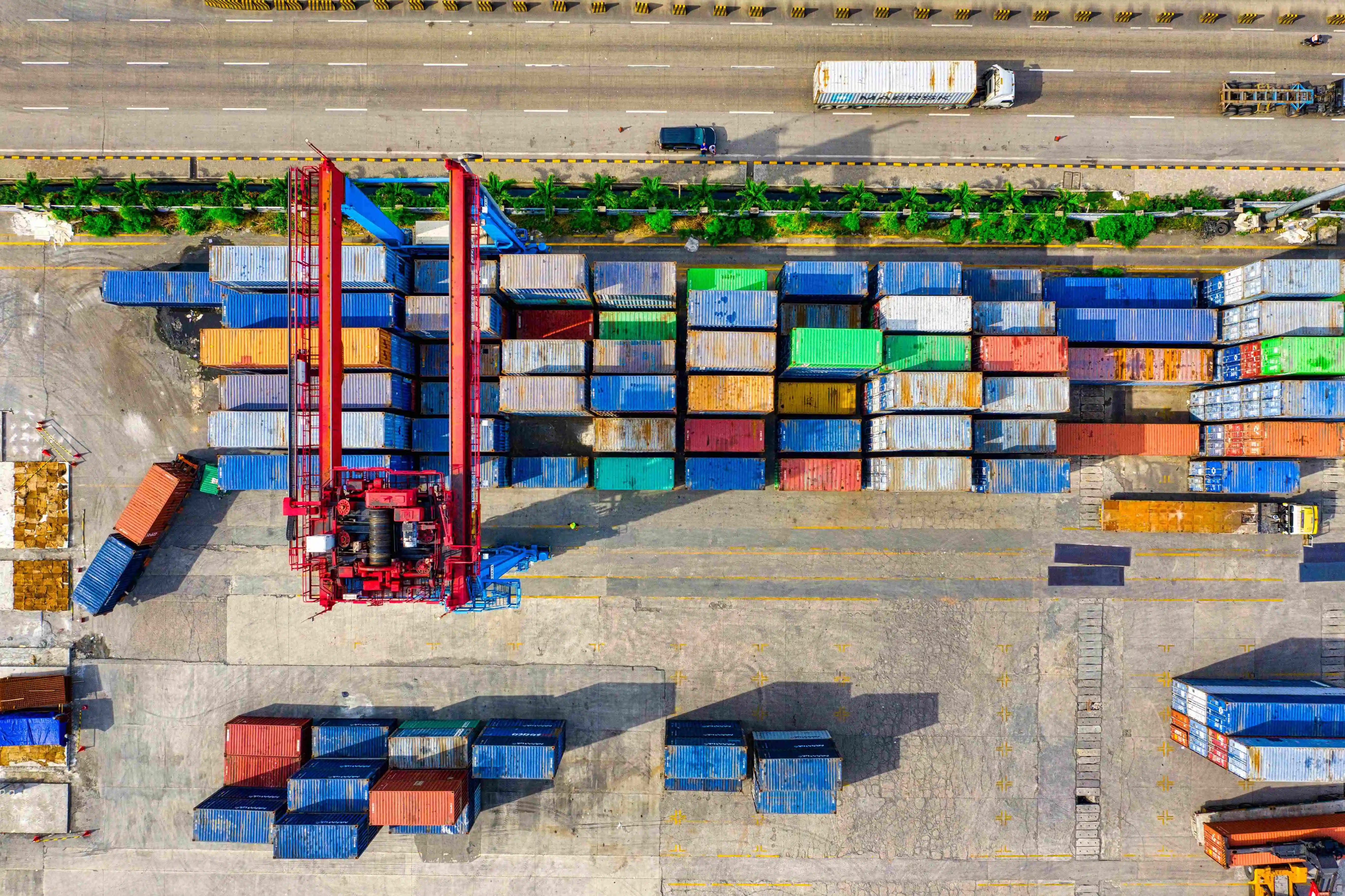Logistics is the foundation for the smooth operation of supply chains. But what exactly is logistics and what role does it play in the field of transport and logistics businesses?
Logistics: Definition
What is logistics?
Logistics, in simple terms, encompasses all coordinated activities aimed at:
- planning
- implementing
- controlling the efficient flow of goods, services, information, and funds from the point of origin to the point of consumption.
It represents an essential link in strategic operations management, aiming to optimize each step of the process.
The importance of logistics
In an industry where time means money, logistics becomes the determining factor for customer satisfaction. Timeliness in delivery, meticulous inventory management, and coordination of transportation means are crucial elements.
Logistics enables optimal resource utilization, thereby reducing operational costs. Well-organized warehouses, efficient supply chain planning, and precise inventory management are elements contributing to maximizing efficiency and minimizing expenses.
Furthermore, logistics plays a central role in strategic decision-making. Through in-depth analysis of logistics data, companies can anticipate market trends, identify growth opportunities, and minimize risks.
Logistics is a strategic lever for any business. It should not be overlooked!
To optimize it, tools are at your disposal to enhance efficiency!
What is logistics: the stakes
The impact of e-commerce on logistics
The advent of e-commerce has profoundly transformed the logistics landscape. With the rise of online purchases, transport and logistics companies face new challenges and opportunities. The speed of deliveries, real-time inventory management, and flexibility become absolute imperatives to meet the growing expectations of consumers.
Logistics is thus propelled to the forefront, playing a strategic role in customer satisfaction. Companies must rethink their logistics processes to adapt to the increasing demand for fast and reliable deliveries while maintaining maximum operational efficiency.
Consumer needs and expectations regarding logistics
Consumers, increasingly demanding, place logistics at the heart of their concerns. Parcel traceability, reduced delivery times, and the possibility of modifying destinations en route are criteria directly impacting consumer choices. Companies must anticipate these needs and exceed expectations to remain competitive.
Logistics thus becomes a real differentiating factor, where service quality prevails. Companies must implement innovative logistics solutions to retain their clientele and win the battle for customer satisfaction.
New trends and technologies in logistics
Faced with these challenges, transport and logistics companies are adopting new trends and technologies. Warehouse automation, the use of drones for deliveries, and artificial intelligence to optimize routes are becoming key elements of logistics strategy.
These technological advancements offer efficiency gains, cost reductions, and better responsiveness to market demands. By investing in these new solutions, logistics companies position themselves as innovative and pioneering players ready to tackle tomorrow’s challenges.
In conclusion, logistics represents much more than a simple supply chain. It constitutes the essential link for transport and logistics companies, with stakes evolving in line with the new market demands. Anticipating, innovating, and meeting consumer expectations are the keys to success in this ever-evolving field.

Optimizing logistics
Tools and methods to improve efficiency and profitability in logistics
In an environment where competitiveness is omnipresent, transport and logistics companies are turning to innovative tools and methods to optimize their operations. The use of advanced technologies such as supply chain management systems (SCM) and traceability software ensures visibility across the entire logistics process. These tools facilitate quick decision-making and proactive problem-solving, contributing to more efficient management.
Good tools are necessary to optimize your logistics strategy. Nomadia specializes in this field and can assist you in this step!
Inventory and Warehouse Management
Rigorous management of stocks and warehouses is a key element in logistical optimization. Companies invest in modern stock management solutions that integrate techniques like ‘just-in-time’ to minimize storage costs while ensuring product availability. Additionally, establishing strategically positioned distribution centers helps reduce delivery times, thereby enhancing customer satisfaction.
Optimizing Transportation Flows
The efficiency of transportation flows plays a significant role in overall logistical performance. Companies strive to:
- Optimize their routes
- Use appropriate modes of transportation
- Integrate real-time tracking solutions to minimize delays and costs.
This proactive approach not only meets customer requirements but also reduces environmental impact, aligning logistics with current sustainability concerns.
Logistics Professions
Different functions and responsibilities in the logistics field
Each link in the logistics chain has well-defined responsibilities. Logistics managers, for instance, ensure the smooth coordination of operations. Order preparers ensure that products are ready for shipment according to customer demands. Finally, heavy-duty drivers are at the core of execution, transporting goods from one point to another.
Skills and Qualifications Required for Working in Logistics
Working in logistics requires a specific set of skills. The ability to anticipate needs, swiftly solve problems, and effectively collaborate with various stakeholders in the logistics chain are major assets. Qualifications vary based on positions, ranging from specific certifications for transport vehicle drivers to university degrees for logistics managers.
In conclusion, logistics is much more than a mere link in the supply chain of transport and logistics companies. It’s a complex discipline that demands precise coordination, diverse skills, and a profound understanding of the entire process. Working in this sector requires not only technical expertise but also the ability to adapt to the constant challenges of the modern logistics chain.

